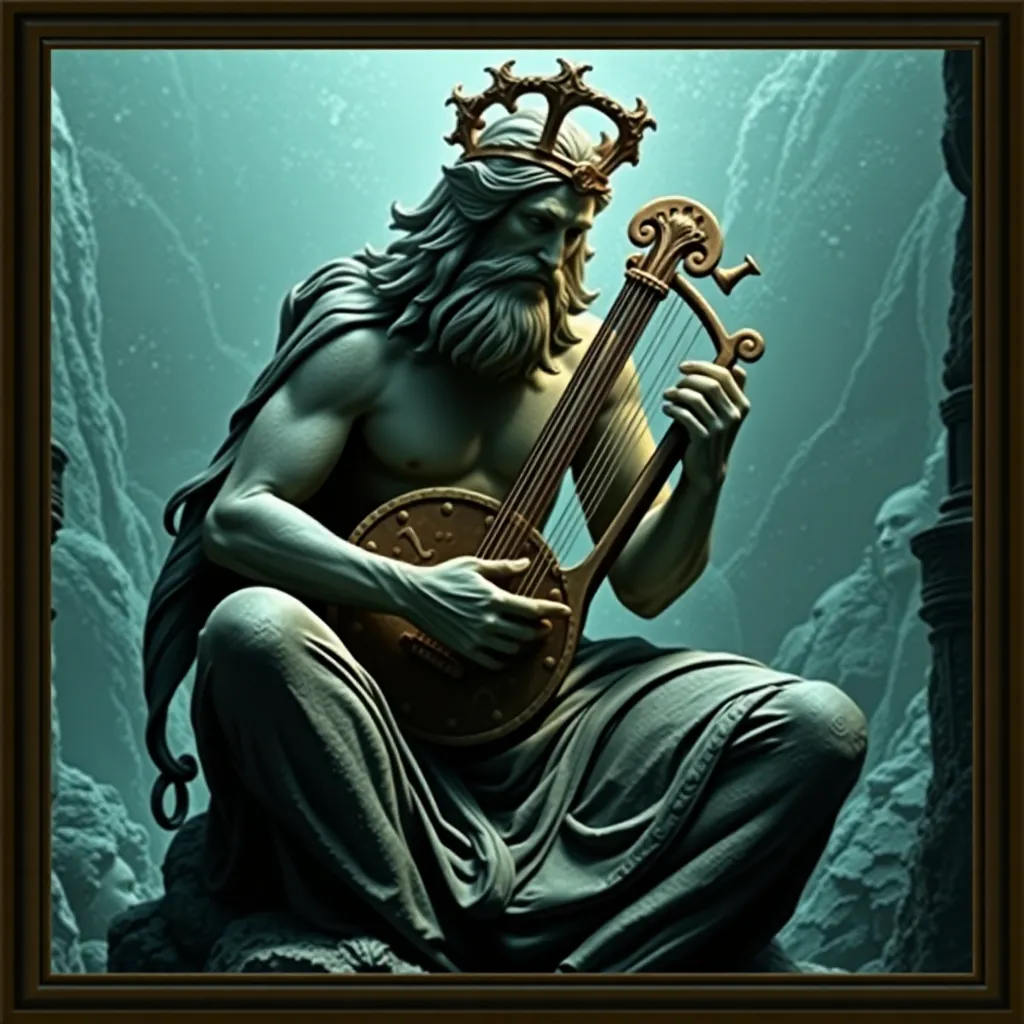The Role of Music in the Underworld: Orpheus and His Lyre
I. Introduction
Orpheus stands as one of the most celebrated figures in Greek mythology, renowned not only for his exceptional musical talent but also for his poignant love story with Eurydice. Music held a significant place in ancient Greek culture, serving as a medium for worship, storytelling, and emotional expression. This article delves into the transformative power of music in the underworld, particularly through the lens of the myth of Orpheus, exploring how his music could bridge the realms of the living and the dead.
II. The Myth of Orpheus and Eurydice
The tale of Orpheus and Eurydice is a tragic narrative that captures the essence of love and loss. Orpheus, a gifted musician, fell deeply in love with Eurydice, a beautiful nymph. Their happiness was short-lived, as Eurydice was bitten by a snake and died shortly after their wedding. Devastated by her death, Orpheus resolved to journey to the underworld in search of her.
This heart-wrenching story not only illustrates the depth of Orpheus’s love but also highlights his role as a symbol of longing and loss. His descent into the underworld represents the universal human experience of grief and the desire to reclaim what has been lost.
III. The Power of Music in Mythology
In ancient Greek beliefs, music was more than mere entertainment; it was seen as a divine force with the ability to influence emotions and communicate with the gods. The Greeks believed that music could:
- Invoke the presence of deities
- Facilitate healing and emotional relief
- Enhance rituals and ceremonies
Music served as a powerful tool for emotional expression, capable of conveying joy, sorrow, and everything in between. It was understood that the right melody could resonate with the soul, making it a vital aspect of both personal and communal experiences.
IV. Orpheus’s Descent into the Underworld
Orpheus’s journey to Hades was fueled by his overwhelming love for Eurydice and his determination to bring her back to the world of the living. The challenges he faced were immense, as he had to navigate the treacherous landscape of the underworld, filled with sorrowful souls and formidable guardians.
Orpheus’s musical talent played a crucial role in this journey. His enchanting songs melted the hearts of the creatures in the underworld, allowing him to move past obstacles that would have been insurmountable for an ordinary mortal. The power of his music was such that it softened the hearts of the fierce guardians of the underworld.
V. The Impact of Orpheus’s Lyre on Hades and Persephone
Orpheus’s lyre, a divine instrument said to be crafted by Hermes and imbued with celestial qualities, became a symbol of his extraordinary abilities. As he played, the melodies resonated throughout the underworld, reaching the ears of Hades and Persephone.
The reaction of Hades and Persephone to Orpheus’s music was profound. Moved by the beauty of his songs and the depth of his love, they were compelled to grant him a chance to reclaim Eurydice. This moment illustrates music’s role as a catalyst for mercy and compassion, even in the most unforgiving of realms.
VI. Themes of Loss and Redemption
The narrative of Orpheus and Eurydice is steeped in themes of grief and hope. Orpheus’s music serves as a conduit for expressing his sorrow and longing, allowing him to confront his grief while simultaneously seeking redemption through his love for Eurydice. The interplay between music, memory, and nostalgia is a poignant reminder of how art can encapsulate the human condition.
Orpheus embodies the struggle between despair and hope, as he navigates the thin line between life and death. His story resonates with anyone who has experienced loss, highlighting the profound emotional impact of music as a means of connection and remembrance.
VII. Legacy of Orpheus in Art and Literature
The influence of Orpheus extends far beyond ancient Greece, impacting various artistic expressions throughout history. His myth has inspired:
- Literature: Poets and writers have drawn on Orpheus’s journey to explore themes of love, loss, and the power of art.
- Visual Arts: Artists have depicted Orpheus in paintings and sculptures, capturing the essence of his musical prowess and emotional depth.
- Music: Composers have created operas and symphonies inspired by the Orpheus myth, celebrating the transformative power of music.
Interpretations of the Orpheus myth vary across cultures and eras, reflecting the universal themes of love and loss. The enduring appeal of Orpheus as a symbol of music’s power continues to resonate, reminding us of music’s capacity to transcend boundaries and connect us to our deepest emotions.
VIII. Conclusion
In summary, the role of music in the underworld, as exemplified by the myth of Orpheus and his lyre, reveals profound insights about the human experience. Music serves as a bridge between life and death, embodying themes of love, loss, and redemption. Orpheus’s story prompts reflection on the broader implications of music in contemporary society, as we continue to use it as a means of expressing our deepest emotions and connecting with those we have lost.
Ultimately, the legacy of Orpheus invites us to recognize music’s unique ability to traverse the realms of existence, offering solace and understanding in times of sorrow and grief.




